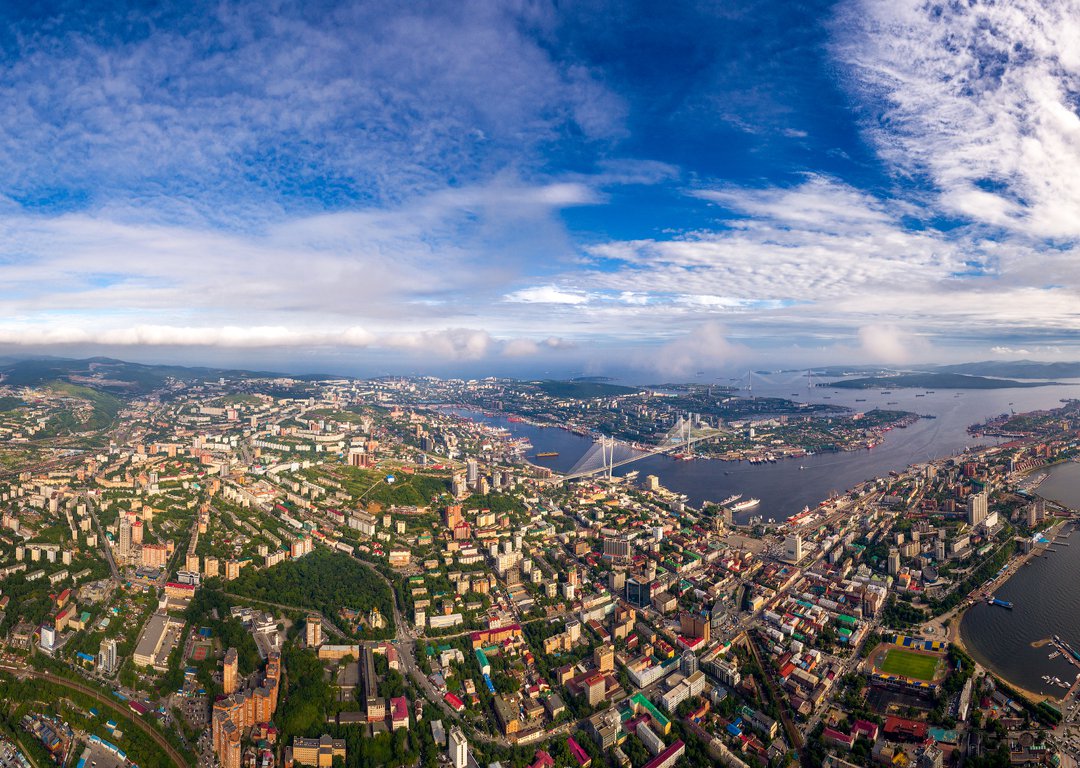 Vladivostok
Vladivostok➤ Arrive Vladivostok
➤ Meet and greet at the train station
➤ Transfer to the hotel and guaranteed early check-in
➤ Guided city tour: harbor, Submarine S-56, Golden Bridge, one of city's viewpoints, Vokzalnaya Square, the monument of the Trans-Siberian Railway, China town
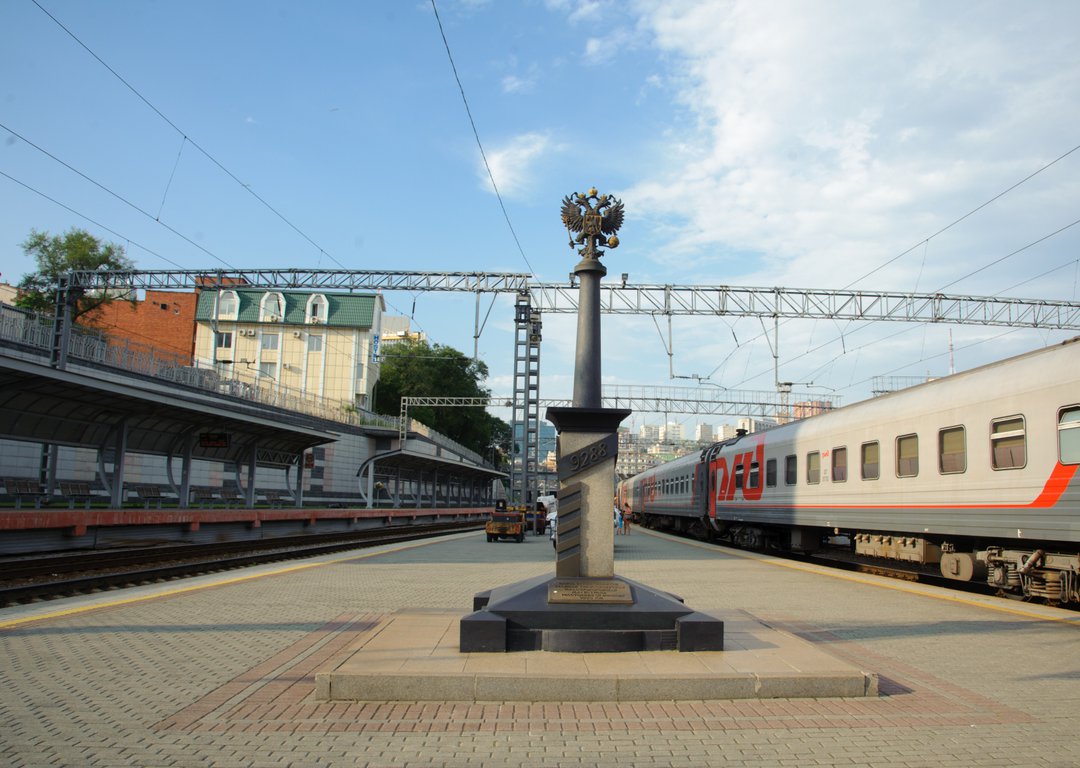 Here the Trans-Siberian legally ends
Here the Trans-Siberian legally endsWelcome to Vladivostok, the vibrant capital of Primorye and one of the most picturesque cities in the Russian Far East! Set on the rugged shores of the Sea of Japan, Vladivostok is known for its stunning landscapes, diverse history, and strategic importance. It was closed to international travelers during the Soviet era as a key military base for the Pacific Russian Fleet. However, after the fall of the USSR in 1992, the city opened its doors to the world, allowing visitors to explore its rich heritage and beauty.
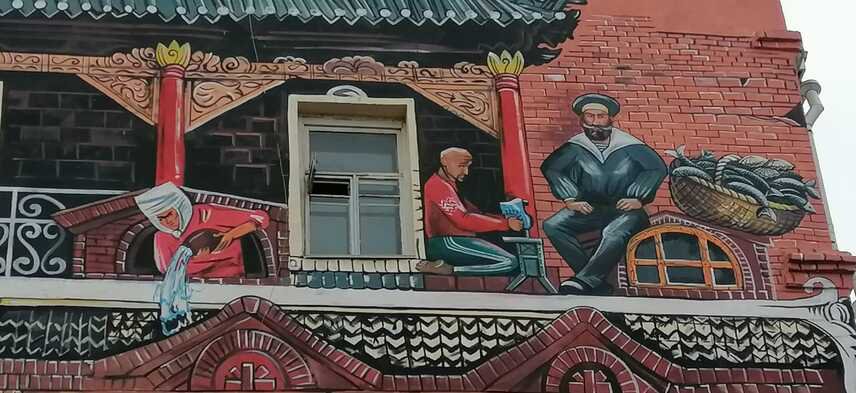 Chinese Heritage
Chinese Heritage
Vladivostok, with its breathtaking coastal scenery and vibrant urban life, is the perfect destination to wrap up a Trans-Siberian adventure. After traveling through vast landscapes of Russia, this coastal gem offers a refreshing contrast, with its blend of history, culture, and natural beauty.
Vladivostok's history is a fascinating tapestry of cultural, military, and economic influences, with diverse peoples shaping the city's growth and character. As a strategically important port, the city has attracted a wide range of residents over the centuries, each leaving their mark on the city’s development.
Vladivostok was initially established as a military outpost by the Russian Empire in 1860, designed to secure its interests in the Pacific. The first civilian settlers were Chinese merchants, drawn by the booming trade and the strategic location at the edge of the Russian Empire. The city’s early development relied heavily on the Chinese population, who worked as traders, water carriers, and laborers, helping to build the city's infrastructure and economy.
In her account, Eleanor Pray, the wife of an American entrepreneur who lived in Vladivostok for 36 years, described a scenario that would be even worse for the city than war: the sudden and complete disappearance of all the Chinese inhabitants. These included water carriers, laborers, merchants, vendors selling snowdrops and goods in the lanes, gardeners, and fishermen. During the late 19th and early 20th centuries, the Chinese population was a vital part of life in Vladivostok and the surrounding Russian Far East, particularly in the South Ussuri Territory where the "manza" (Chinese settlers) had established themselves. Their disappearance had a profound impact on the region, highlighting their essential role in its economy and daily functioning.
Vladivostok is a city that sits at the crossroads of continents and cultures, embodying both Russian and Asian influences due to its geographic location on the Pacific coast. It is often referred to as the "gateway to the Far East" of Russia, and while it's part of the Russian Federation, it has a distinctly Asian atmosphere in terms of its proximity to China, Japan, and Korea. The city's rugged coastline, its naval and military history, and its role as a major port contribute to its unique character.
As you explore the landmarks like the Harbor, Submarine S-56, Golden Bridge, and Vokzalnaya Square, you get a sense of Vladivostok's multifaceted identity. The Harbor and Submarine S-56 bring the maritime history and military presence of the city to life, while the Golden Bridge, one of the longest cable-stayed bridges in the world, offers a stunning view of the city’s modern aspirations. The Vladivostok fortress museum provides a glimpse into the city’s past as a strategic military outpost, while the Trans-Siberian Railway monument reminds visitors of the city's important role in Russia's connectivity with the broader world.
The question of whether Vladivostok is more "Asian" or "European" is not easily answered. Geographically, it lies in Asia, but culturally and politically, it is Russian, representing the nation's presence in the Far East. Is it the center of a new world? Perhaps in the sense that it is at the forefront of Russia's growing ties with Asia, a critical port in the Pacific region. Or is it the ambitious "world's end"?
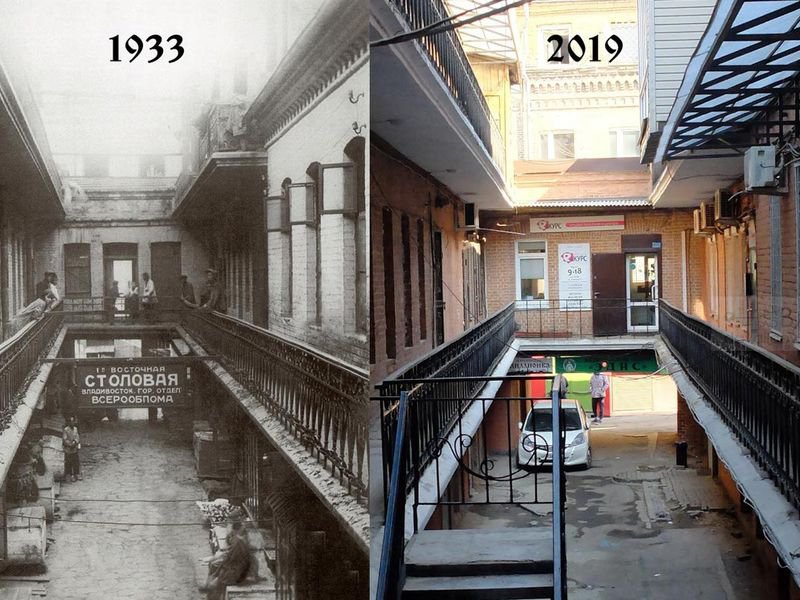 Past & Present
Past & PresentHow was Vladivostok founded and established, who stood at its origins? As a port city, Vladivostok quickly became a magnet for international traders, with Germans, French, Americans, Chinese, Japanese, and Koreans leaving a lasting impact on its culture and history. You can still see traces of this diverse heritage today, including the Monument to the Discoverers, which honors those who helped establish the city, and the Arc de Triumph of Tsarevich Nikolai, built to commemorate the visit of Tsarevich Nikolai (later Tsar Nicholas II) in 1891. Walking through the city, we also encounter the Golden Mile, an area filled with modern apartment buildings, many of which are owned by foreigners. This part of Vladivostok reflects the city’s long history as an international crossroads and its ongoing role as a bustling port with a rich blend of cultural influences.
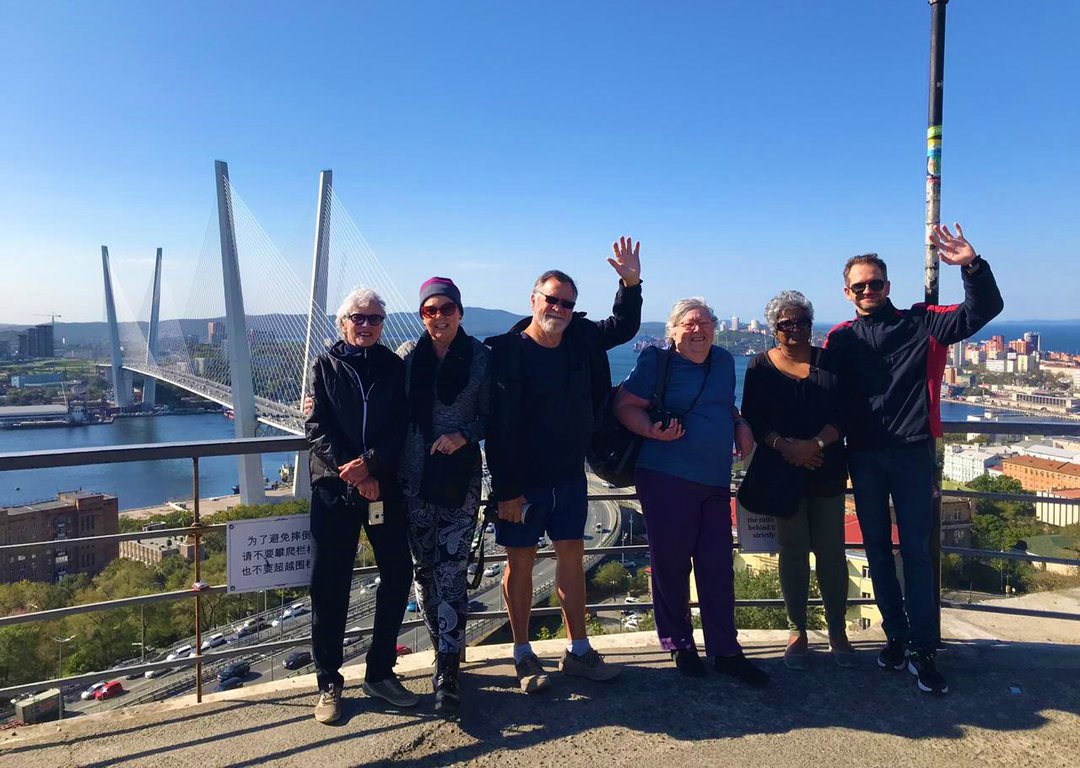 Golden Bridge
Golden BridgeAnd of course, we will not miss iconic photo spots. You will bring back home lots of memories from the Far East of Russia!
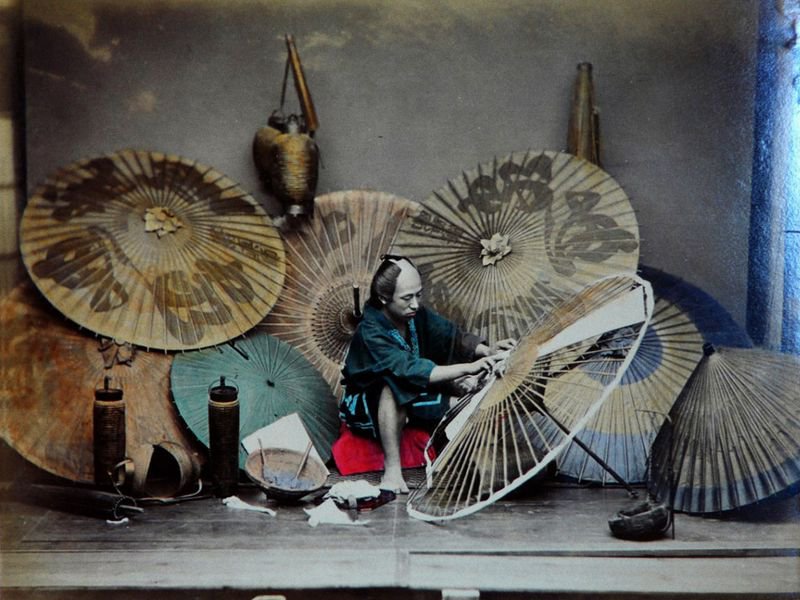 Japanese in Vladivostok
Japanese in VladivostokThe Japanese Vladivostok Tour offers an in-depth exploration of the city’s long-standing connections with Japan. On this private tour, you’ll discover the historic Japanese quarter, learn about the early Japanese diaspora in Vladivostok, and explore how Japanese culture influenced local life. See landmarks like the Japanese Consulate General, a Buddhist prayer house, and the home of industrialist Horio Naozo, along with a literary stone dedicated to poet Yesano Akiko. You’ll also see architectural gems like a building adorned with griffins and visit the iconic Japanese-style school. Learn about the local history of Japanese imports such as soy sauce, umbrellas, and kimonos, and even hear about the street once home to ramen shops. This tour is a unique opportunity to delve into the rich cultural and historical ties between Vladivostok and Japan.